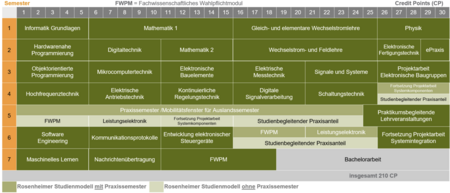About the degree programme
Shaping the Future with Smartly Connected Electronic Systems
Do you want to design technology that transforms the world? Modern electrical and information technology powers many of the essentials of everyday life. It provides the backbone for reliable communication networks such as mobile services and Wi-Fi, makes intelligent transport systems with real-time navigation a reality, and drives the smartphones and computers that are at the heart of our digitally connected world.
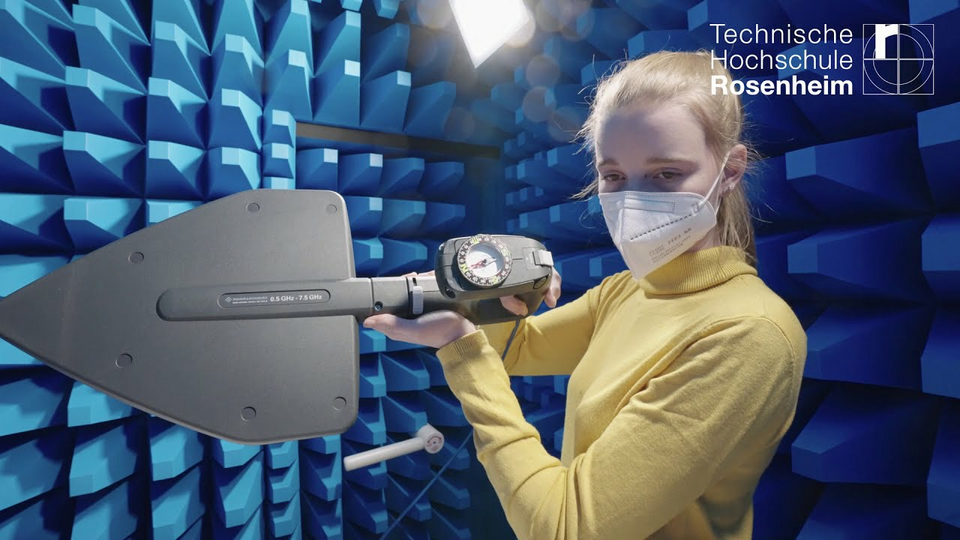
Please note: Once you watch the video, data will be transmitted to Youtube/Google. For more information, see Google Privacy .
More Than Just Theory
With us, you gain more than theoretical knowledge. You will learn how automation and communication technology, software, and chip development work in detail. For your designs, you will use state-of-the-art development tools from leading global manufacturers as well as methods from artificial intelligence—just as they are applied in research and development departments worldwide. From the third semester onwards, you can put your knowledge directly into practice and realize your own ideas in exciting hands-on projects. Thanks to the Rosenheim study model with shortened semesters, you have the opportunity to gain additional practical or industrial experience—for example through a dual study program—and enjoy maximum flexibility in shaping your practical phases or study abroad stays. You decide what best fits your path. In the Electrical and Information Engineering program at TH Rosenheim, you will work in small teams in well-equipped laboratories on real-world challenges. You will benefit from close contact with your professors as well as strong collaborations with regional companies. This way, you will be ideally prepared for your future professional career.
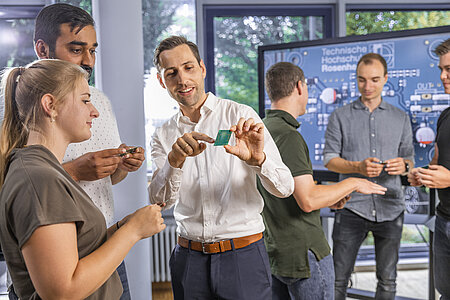
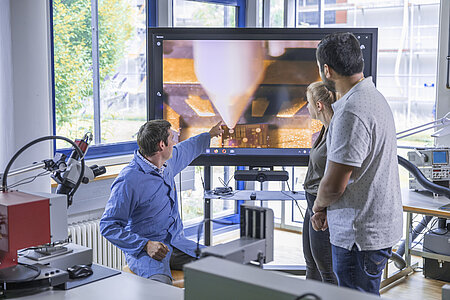
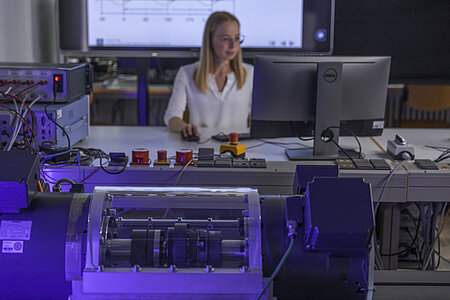

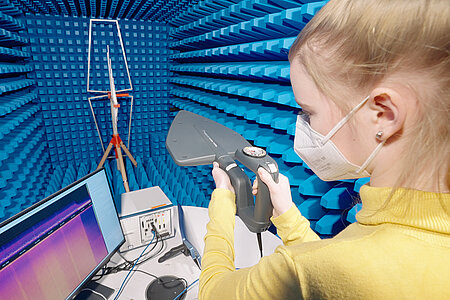
Virtual Study Orientation
Online self-assessments and information resources for prospective students to support their decision-making regarding studies.
Course content
Following a foundation in electrical and information engineering, the program offers both scientific and practice-oriented specialization in the fields of automation and communication technology. Robotics, software engineering, chip development, and artificial intelligence play a central role in this focus.
The program comprises a total of seven semesters: six theoretical semesters as well as a basic internship and a career-oriented practical internship. The basic internship can be completed either prior to starting your studies or during the lecture-free periods. The practical internship may be undertaken either as a dedicated practical study semester or during lecture-free periods.
In the first two semesters, courses in mathematics, physics, and the fundamentals of electrical and information engineering are taught. Starting from the third semester, students move on to the core subjects of engineering. The program concludes with the bachelor’s thesis and an accompanying bachelor seminar.
Study and Examination Regulations
Further documents
Career Opportunities
Electrical engineering is one of the three largest industrial sectors in Germany and offers our graduates excellent career prospects—far beyond national borders. While the field was traditionally male-dominated, today more and more women are entering electrical engineering professions, some of them in leadership positions.
The Association for Electrical, Electronic & Information Technologies (VDE) expects the importance of electrical and information engineering to continue to grow in the coming years. This development will affect not only the classical core professions but also an increasing number of application-oriented industries in both the industrial and service sectors. As a result, the demand for electrical and information engineering specialists is steadily rising.
Graduates in this field are virtually never unemployed. According to industry experts, the annual demand for electrical and information engineering graduates significantly exceeds the number of university graduates available.
Young professionals often begin their careers in sectors such as communication technology, medical technology, the automotive industry, semiconductor technology, automation engineering, or the aerospace industry.
Possible career paths include:
- Hardware and software development
- Project management and technical leadership
- Manufacturing and quality assurance
- Technical marketing and sales
Application and admission
How can you apply for the degree programme?
- Apply only via uni-assist if you have obtained your higher education entrance qualification outside Germany
- Apply via the TH Rosenheim online application portal if you have obtained your higher education entrance in Germany
→ Application for a degree programme explained step by step
![[Translate to English:] [Translate to English:]](/fileadmin/_processed_/2/1/csm_R-Gebaeude_mit_STUPA_3ed927407f.jpg)
![[Translate to English:] [Translate to English:] Futuristic Server; © spainter_vfx](/fileadmin/_processed_/f/1/csm_Futuristic_server_AdobeStock_323435167_839958fc89.jpeg)
